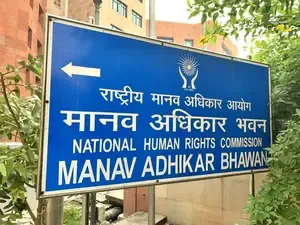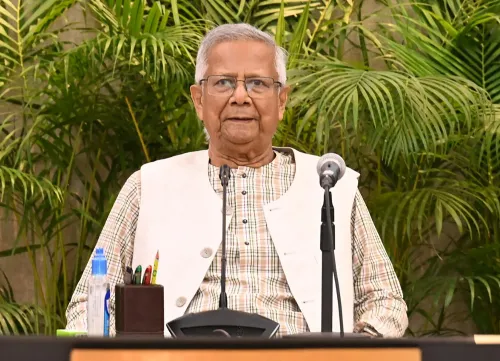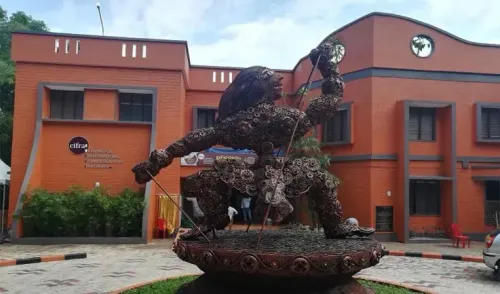NHRC Acts on the Distress of Prisoners, Demands State Reports

Synopsis
Key Takeaways
- NHRC's suo motu cognisance regarding prisoners' welfare
- Notices issued to Chief Secretaries of States and UTs
- Concerns over overcrowding and inadequate facilities
- Unique challenges faced by women prisoners and their children
- Demand for detailed reports on women's incarceration
New Delhi, April 8 (NationPress) The National Human Rights Commission (NHRC) has initiated suo motu cognisance regarding the serious concerns faced by prisoners, especially women inmates and their children, across various jails in the nation. Taking a significant step to tackle the ongoing systemic issues within the prison framework, the NHRC has dispatched notices to the Chief Secretaries of all States and Union Territories, requesting detailed reports on the current conditions within a span of four weeks.
This intervention by the NHRC follows numerous reports and complaints put forth by its Special Monitors and Rapporteurs after their inspections of different jails throughout India. These reports have illuminated several urgent concerns, including overcrowding, a deficiency of essential amenities, and inadequate healthcare services in prisons. The situation is particularly dire for women prisoners, who encounter distinct challenges related to safety, dignity, and health.
Consequently, the Commission has mandated that the Chief Secretaries of all States and Union Territories provide a comprehensive report within four weeks covering the following aspects:
Information received by the NHRC indicates that many jails nationwide are suffering from overcrowding, which deprives prisoners, particularly women and children, of access to proper sanitation, clean drinking water, and sufficient nourishment. Women inmates, specifically, struggle with shortages of sanitary products, hygienic conditions, and basic necessities.
Reports from NHRC Special Monitors have indicated a rise in violence against female prisoners, resulting in mental distress and damage to their dignity. The lack of effective safeguards has rendered these inmates vulnerable.
The quality of food provided in jails has been reported as inadequate, leading to malnutrition, especially among pregnant women and nursing mothers. The absence of proper healthcare facilities worsens these issues.
Women prisoners who reside with their children in jail experience a significant deficiency in educational opportunities for their offspring. Welfare programs, including access to education and legal assistance, have been poorly executed, leaving children without the means to receive fundamental schooling.
Concerns have been raised regarding the non-implementation of critical programs aimed at the welfare of inmates. These programs encompass vocational training, legal aid, and rehabilitation initiatives that could facilitate the reintegration of prisoners into society.
In its notice, the NHRC has asked the Chief Secretaries of all States and Union Territories to submit a thorough report addressing the following points within four weeks:
- The number of women prisoners confined in jails within their State
- The number of women prisoners whose infants are lodged in jails due to the incarceration of their mothers
- The number of women prisoners, distinguishing between convicted and undertrial prisoners
- The number of women undertrial prisoners who have been incarcerated for over a year
- The number of male undertrial prisoners and those who have been jailed for more than a year.









